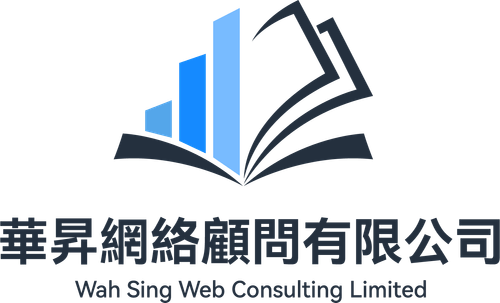Huasheng Network Consulting Co., Ltd.
Huasheng Network makes management more efficient
Enterprise Resource Planning System (ERP System)
ERP is a management platform that uses information technology to provide decision-making and operation means for enterprise decision-makers and employees. Integrate the enterprise's finance, human resources, manufacturing, supply chain, service and procurement processes into an information management platform, and achieve standardization of information data, integrated system operation, rationalization of business processes, dynamic performance monitoring, and continuous management improvement. .
• Integrate financial, logistics and administrative business processes
• Use the same data
• Profit maximization – with industry-specific features

The value advantage of ERP system
The main functions of the ERP management system are: shortening turnover time; integrating logistics and capital flow; strengthening material and production planning; simulating the impact of different market conditions on production planning, capacity demand planning, material procurement planning, storage and transportation; enhancing the company's ability to respond quickly to changes in the operating environment; enabling real-time and online information query by management; providing more accurate and timely financial reports for corporate decision-making; providing various management reports and analytical data in a timely manner; the ERP system itself has strict internal control functions.


Integrate various types of information to achieve efficient collaboration
ERP software can integrate a company's logistics, information flow, capital flow, management flow, and value-added flow, integrate local and partial information, easily connect them, achieve internal coordination and consistency, and make management and decision-making more scientific and efficient.

Simplify automation processes and reduce operating costs
By analyzing and managing each process - strengthening correct processes, correcting incorrect processes, and eliminating useless processes, companies can accomplish more tasks with fewer resources.

Accelerate reporting and gain timely insights
By utilizing the reporting function of the ERP system, various business and financial reports can be quickly generated, designed, and merged, allowing employees and management to gain timely insights and take actions based on the reports.

Ensure data accuracy and consistency, and manage the company by data
ERP replaces manual work to collect and analyze data and make intelligent predictions, enabling timely discovery and resolution of problems. At the same time, by centralizing all enterprise data, it eliminates information silos and ultimately enables scientific decision-making based on data.

Real-time online to build a more agile enterprise
The data within the ERP system are interconnected and updated in real time, so every company employee can keep up to date with the latest information at any time.

Reduce risk
Make business more visible and controllable, ensure legality and compliance, and predict and prevent risks.
FAQ
What is ERP system?
The full name of ERP is Enterprise Resources Planning, which was proposed by the international consulting firm Gartner in 1990. It is a software system that helps enterprises comprehensively manage their business operations. It is an integrated enterprise management software for material resource management (logistics), human resource management (personnel flow), financial resource management (financial flow), and information resource management (information flow).
What is Cloud ERP software?
Cloud ERP refers to an ERP system deployed in the cloud rather than locally, which can provide the same or better functions as locally deployed ERP systems while eliminating most of the disadvantages of locally deployed systems, such as upfront licensing fees. According to an IDC report, "Because cloud ERP systems can access and analyze massive amounts of data in near real time, enterprises' demand for cloud ERP systems continues to grow."
How do enterprises choose the ERP system that suits them?
What modules does the ERP management system have and whether it is compatible with the enterprise's business?
The operability of the ERP management system and whether its operation is simple and easy to operate.
The deployment type of the ERP management system and whether it meets the needs of the enterprise and whether it can achieve the goal of improving work efficiency and saving operating costs
Does the ERP management system have complete customer service and whether it can provide exclusive guidance for the enterprise to help users understand
how to operate the ERP system and get started quickly.
What are the advantages of ERP system?
Integrate various types of information to achieve efficient collaboration. ERP software can integrate a company's logistics, information flow, capital flow, management flow, and value-added flow, integrate local and partial information, easily connect them, achieve internal coordination and consistency, and make management and decision-making more scientific and efficient.
Simplify and automate business processes and reduce operating costs. By analyzing and managing each process - strengthening correct processes, correcting incorrect processes, and eliminating useless processes, companies can accomplish more tasks with fewer resources.
Accelerate reporting and gain timely insights. By utilizing the reporting function of the ERP system, various business and financial reports can be quickly generated, designed, and merged, allowing employees and management to gain timely insights and take actions based on the reports.
Ensure data is accurate and consistent, and manage the company by numbers. ERP replaces manual work to collect and analyze data and make intelligent predictions, enabling timely discovery and resolution of problems. At the same time, by centralizing all enterprise data, it eliminates information silos and ultimately enables scientific decision-making based on data.
Real-time online to build a more agile enterprise. The data within the ERP system are interconnected and updated in real time, so every company employee can keep up to date with the latest information at any time.
Reduce risk. Make business more visible and controllable, ensure legality and compliance, and predict and prevent risks.
